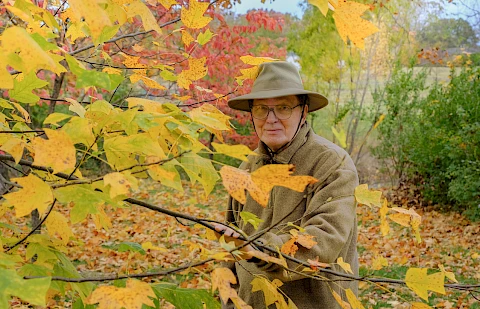
The transition of summer into fall brings more than just cooler temperatures and beautiful foliage. It also means an increase in allergens, which can be particularly troublesome for seniors and those who care for them. Seniors may be more sensitive to these irritants, making it necessary to take steps to protect eye health during the season.
What to Know About Fall Allergens
A few common culprits primarily trigger fall allergies. Ragweed is perhaps the most notorious fall allergen, as its pollen can travel miles through the air. Mold also becomes prevalent, especially in damp, fallen leaves. Dust mites, which thrive in warm, humid environments, can become more active as people move indoors for warmth.
These allergens can be detrimental to eye health, particularly in older adults. Seniors may find their eyes more susceptible to irritation and discomfort. Careful monitoring of symptoms and simple lifestyle adjustments can go a long way in reducing allergy-related eye issues.
Identifying Allergy-Related Eye Symptoms
Fall allergies often manifest through various symptoms. Itching, redness, tearing, and swelling are common signs that your eyes are reacting to allergens. Your eyes may also feel dry or gritty, which can cause further discomfort.
It’s important to distinguish between allergy-related symptoms and those of other eye conditions. Allergies typically affect both eyes and occur alongside other allergy symptoms, such as sneezing and a runny nose. If you experience symptoms localized to one eye, it could indicate an infection or other issue that warrants medical attention.
Minimizing Allergen Exposure
Reducing exposure to allergens can alleviate eye symptoms and enhance comfort. Here are some helpful strategies:
- Regularly clean your home to reduce dust and mold. Consider using air purifiers to filter out allergens. Maintaining low humidity levels can also deter mold and dust mites.
- When outside, wear sunglasses to protect your eyes against pollen and wind. Try to avoid going outdoors during peak pollen times, particularly mid-morning to early afternoon. Always check local pollen counts to plan your day.
With these tips in mind, you should have an easier time avoiding allergens and keeping your eyes protected.
Eye Care Tips During Allergy Season
Rinsing your eyes with clean water can remove allergens and provide relief. Use a gentle, sterile solution if water alone isn't enough. Over-the-counter lubricating drops can also soothe dryness and wash away irritants. Choose preservative-free options for sensitive eyes.
Antihistamines can alleviate symptoms and are available without a prescription. It's best to consult with a healthcare provider before starting any new medication, especially for those with pre-existing conditions.
When to Consult an Eye Care Professional
Sometimes, symptoms persist despite best efforts to manage them at home. Be vigilant and consult an eye care professional if symptoms worsen or do not improve with over-the-counter treatments. Seek medical attention if vision changes occur or if you experience severe pain or discharge.
Regular eye examinations are equally vital for seniors. They help detect issues early and keep your vision as healthy as possible. Keeping up with scheduled appointments ensures that any problems are identified early and that appropriate treatment can be provided.
Seek Tailored Care and Support This Fall and Beyond From Senior Helpers
Fall allergies can be a nuisance, but by taking proactive steps, you can protect your eyes and enjoy the season. If you need assistance or personalized support at home this fall season or beyond, don't hesitate to contact us at Senior Helpers Hershey. We proudly serve seniors in Hershey, Halifax, Hummelstown, Lykens, and Annville through home care solutions tailored to your needs and preferences.